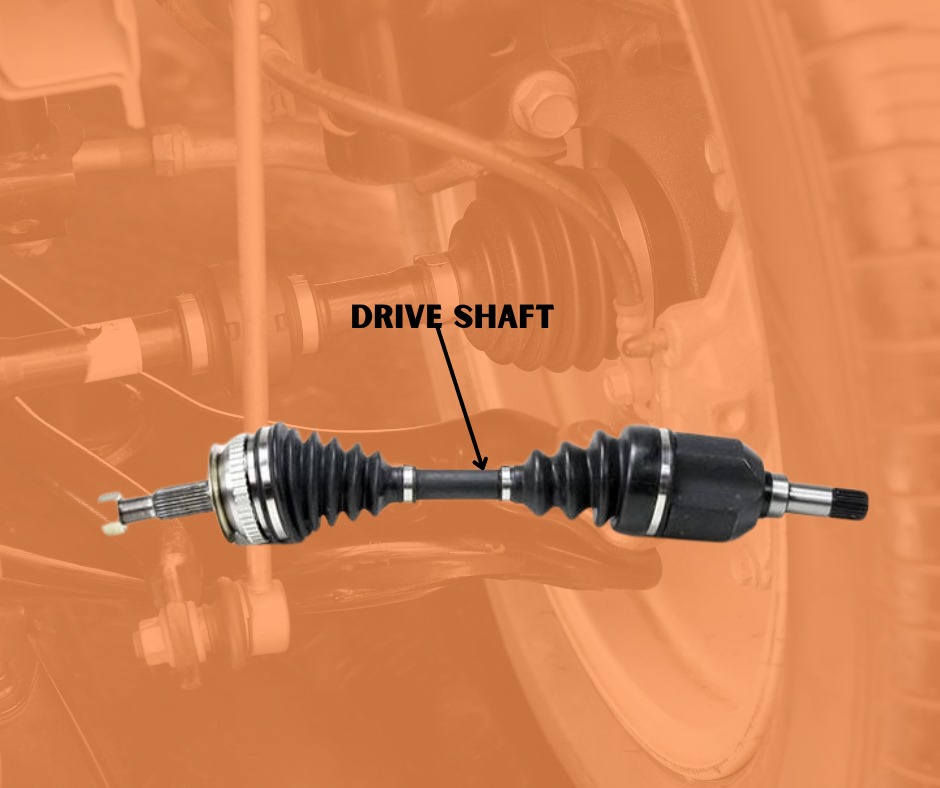Warning Signs of a Malfunctioned Drive Shaft

Discover the critical indicators of a failing drive shaft and ensure your vehicle maintains optimal performance on the road.
Drive Shaft Functions and Importance
The drive shaft, also known as a propeller shaft, is a critical component in vehicles, serving as the link between the transmission and the differential to transfer power from the engine to the wheels. Without a properly functioning drive shaft, a car cannot efficiently convert engine power into motion, making it essential for vehicle mobility and stability.
Understanding the role of the drive shaft contributes to recognizing issues early. It not only transmits torque but also accommodates for suspension movement and wheel travel, ensuring smoothness of the drive. It is vital for vehicle owners to be aware of this component's function to maintain their vehicle's performance and longevity.
Common Symptoms of Drive Shaft Problems
Several symptoms can signal a malfunctioning drive shaft. Unusual noises, such as clunking, squeaking, or rattling, can indicate a worn or damaged drive shaft. Difficulty turning the vehicle or a noticeable shudder during acceleration are also common signs. If the drive shaft is severely damaged, it may even lead to the inability of the vehicle to move.
Another tell-tale sign is a vibration that increases with vehicle speed. This could be due to a balance issue or worn U-joints or CV joints. Paying attention to these symptoms and addressing them promptly can prevent further damage to your vehicle.
How Vibrations Indicate Drive Shaft Issues
Vibrations felt throughout the vehicle, especially at higher speeds, are often related to drive shaft complications. These vibrations may originate from imbalanced drive shafts, worn out U-joints or CV joints, or even damaged shaft components. Such vibrations should not be ignored, as they can worsen over time and lead to more severe mechanical issues.
Diagnosing and fixing the source of vibrations early on is crucial in avoiding additional strain on the vehicle's drivetrain components. It's important for drivers to understand that vibrations can progressively lead to a loss in vehicle control and safety if left unchecked.
Impact of Drive Shaft Failure on Vehicle Handling
A compromised drive shaft can significantly impact vehicle handling. Drivers may experience erratic steering response, difficulty in maneuvering, or an overall decrease in vehicle stability. This can pose a serious risk, especially at high speeds, as the driver may not be able to control the vehicle effectively.
In extreme cases, drive shaft failure can lead to a complete loss of power transmission to the wheels, rendering the vehicle inoperable. It is, therefore, imperative for the safety of the driver and passengers that any signs of drive shaft failure be addressed immediately by a professional.
Professional Inspection and Maintenance Tips
To prevent drive shaft failures, regular inspections and maintenance by professionals are recommended. A thorough check-up can identify potential issues before they escalate, such as checking for play in U-joints, inspecting for seal leakage, and ensuring all components are properly lubricated.
Vehicle owners should adhere to their vehicle's service schedule and consult with a trusted mechanic if they suspect drive shaft issues. Proactive maintenance is the key to prolonging the life of the drive shaft and avoiding costly repairs or replacements down the road.
Drop us a message from our facebook page or Chat us using the widget on the right to order drive shafts for your car.

 Loading..
Loading..